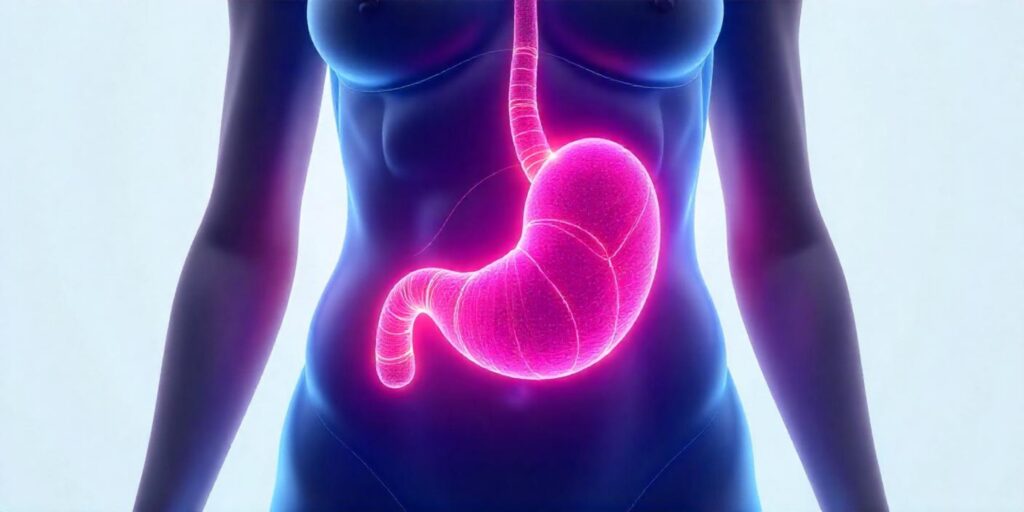
The phrase “the stomach is our second brain” has gained popularity in recent decades, reflecting a growing understanding of the close relationship between gut health and mental well-being. But what does this phrase really mean? In this article, we will explore the reasons why the gut is considered a second brain and how it influences our emotions, behavior, and overall well-being.
1. The Enteric Nervous System
The enteric nervous system (ENS) is a vast network of neurons located throughout the gastrointestinal tract. This system is responsible for regulating digestive functions, such as gut movement and enzyme secretion. The ENS contains about 100 million neurons—more than the spinal cord—and can operate independently of the central nervous system, although it also communicates with it.
This two-way communication between the gut and the brain is what makes the ENS so important. Signals from the gut can affect our mood, while our emotions and stress can impact gut health.
2. Production of Neurotransmitters
One of the most fascinating aspects of this connection is the production of neurotransmitters. Serotonin, a neurotransmitter known for regulating mood, is primarily produced in the gut—about 90% of the body’s serotonin is made there. When gut health is compromised, it can lead to inadequate production of serotonin, resulting in mood disorders and conditions like depression and anxiety.
In addition to serotonin, the gut also produces other important neurotransmitters, such as dopamine and gamma-aminobutyric acid (GABA), which play crucial roles in regulating stress and anxiety.
3. The Gut Microbiome
The gut microbiome, which consists of trillions of bacteria and other microorganisms, plays a fundamental role in gut health. The diversity and composition of these bacteria can influence neurotransmitter production and the body’s response to stress.
Studies show that a healthy and balanced microbiome is associated with better moods and a lower risk of mental disorders. Probiotics and prebiotics, which help promote a healthy microbiome, have been investigated as potential treatments for mental health issues.
4. The Gut-Brain Axis
The gut-brain axis refers to the communication between the gut and the brain. This communication pathway can be influenced by factors such as diet, stress, and the presence of diseases. Research indicates that changes in gut microbiota can affect behavior and cognitive functions, suggesting that what happens in the gut can significantly impact our mental health.
For instance, studies have shown that rats with altered gut microbiota exhibit signs of anxiety and depression, while restoring a healthy microbiome can reverse these symptoms.
5. The Impact of Diet
Diet plays a crucial role in maintaining gut health and, consequently, mental health. Foods rich in fiber, probiotics (like yogurt and kefir), and prebiotics (such as garlic, onions, and bananas) are essential for promoting a healthy microbiome.
Moreover, diets high in sugar and saturated fats can harm gut microbiota and contribute to inflammation that negatively affects mental health. Adopting a balanced diet rich in fruits, vegetables, and whole grains can help maintain gut health and, in turn, improve emotional well-being.
6. Responses to Stress
Stress is a significant factor that can affect both gut health and mental well-being. When we are stressed, the body releases hormones like cortisol, which can impair gut function and lead to gastrointestinal disorders like irritable bowel syndrome (IBS).
On the other hand, compromised gut health can increase vulnerability to stress and anxiety, creating a vicious cycle. Practices such as meditation, regular physical exercise, and adopting a healthy diet can help reduce stress and improve gut health.
The statement that “the stomach is our second brain” emphasizes the importance of taking care of gut health to promote mental well-being. The connection between the gut and the brain is complex, but recognizing this relationship can help us adopt healthy habits that benefit both physical and mental health. Therefore, it is essential to pay attention to our diet, lifestyle, and self-care practices, ensuring that both the brain and the gut are functioning in harmony.